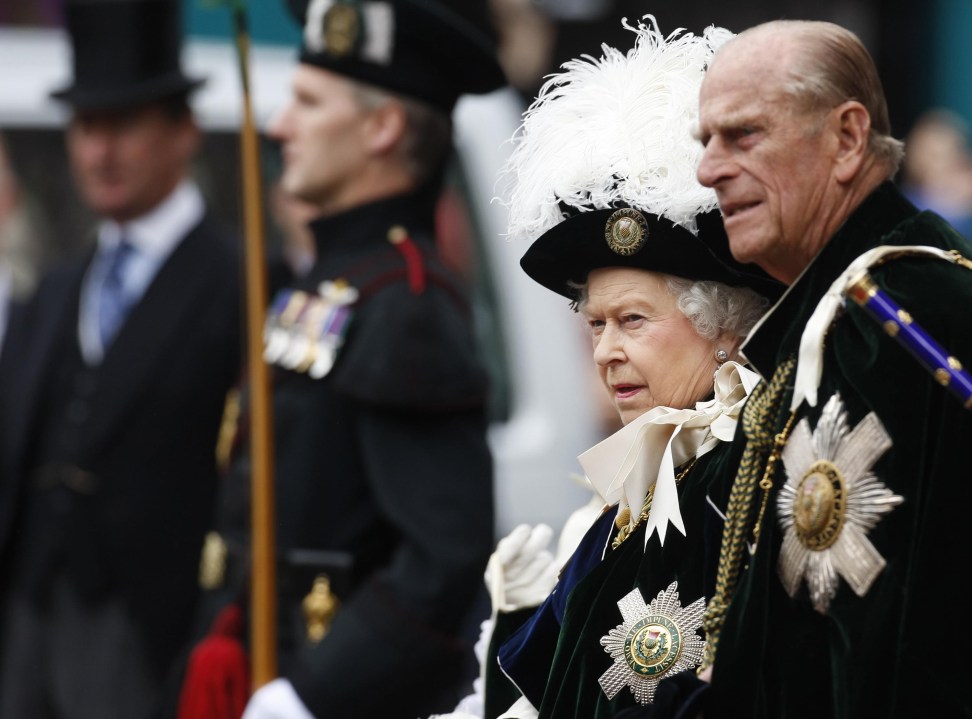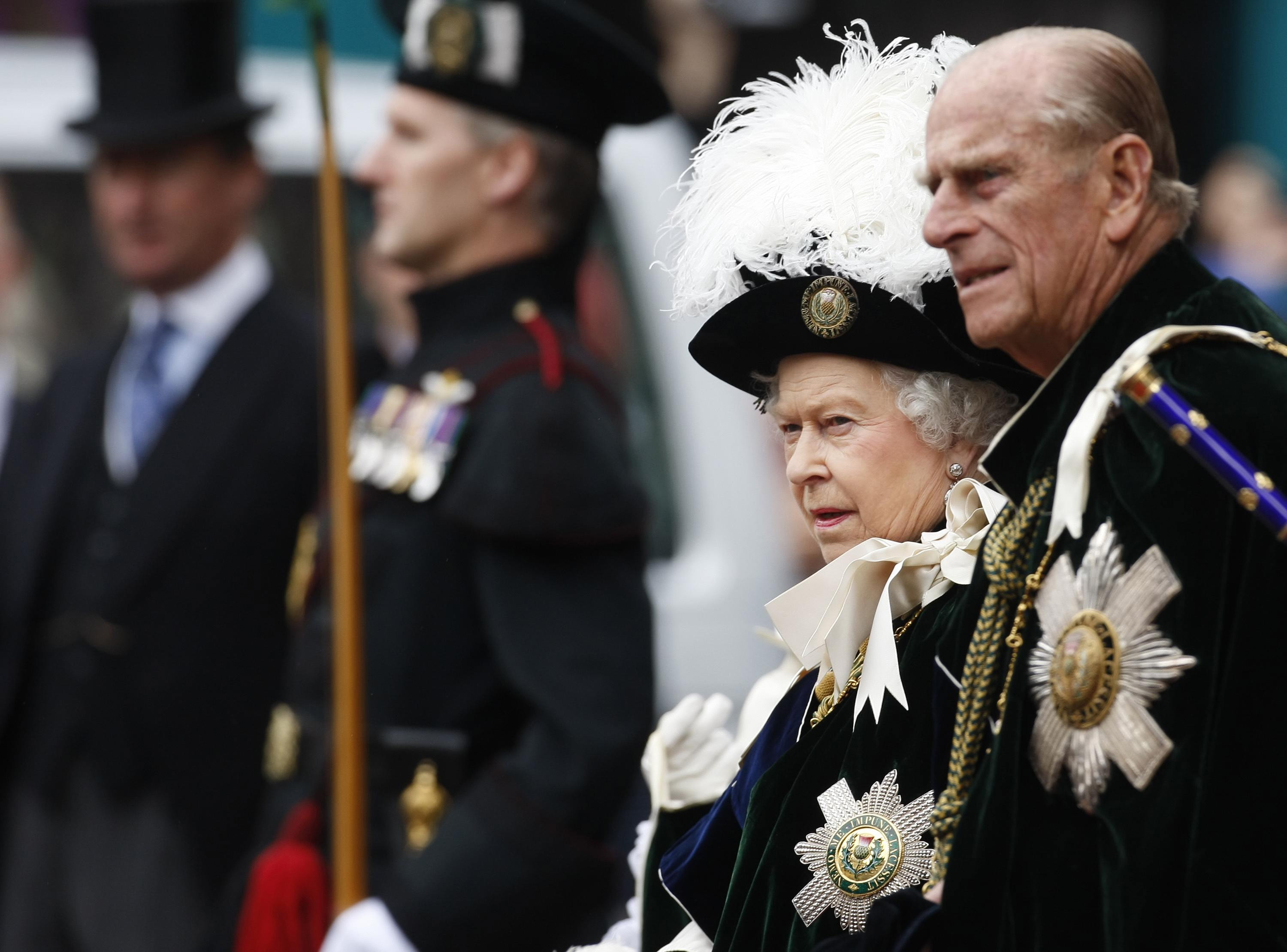In all the coverage of Prince Philip’s death, one word in the tributes keeps grabbing my attention: stoicism. The Spectator wrote that ‘Prince Philip epitomised a very British stoicism; the Times said ‘the royal marriage was built on stoicism, the odd clash and a deep sense of understanding’. The New Yorker meanwhile claimed that ‘with Prince Philip’s death has passed the Last Embers of British Stoicism.’
Prince Philip was of course Greek in origin, but it is a bit of a stretch to call him and her Majesty devotees of Stoicism, the philosophy of Zeno of Athens, Epictetus and Seneca. On the evidence of Christmas broadcasts for the last few decades, there is much more to suggest they drew inspiration from one of Seneca’s exact contemporaries – Jesus of Nazareth.
Conflating Stoicism and Christianity is easily done. The Prime Minister recently praised the Church in the UK for sacrifices made over the past twelve months, foregoing meeting in person and serving their communities: ‘I know that has been a huge burden for many Christians, but it is a burden you have borne with selfless stoicism without complaint.’ It was meant (and taken) as a genuine compliment, yet in the most crucial respects Christianity could not be more unlike Stoicism: the latter accepts the world as it is. The former wants to see it changed.
With its roots in 3rd century BC Athens, the core idea of Stoicism is that flourishing or eudaimonia, is found by remaining self-possessed, retaining dignity whatever happens to you. Unlike Epicureans, who found happiness in the simple pleasures of life, the key to Stoic wellbeing is becoming free of the desire for pleasure or the fear of pain. The goal of the Stoic sage is apatheia – not so much apathy, but an inner ability not to be swayed by things that happen to you and the emotions they might evoke, emotions that disturb mental and spiritual equilibrium.
A good life is the principled, virtuous life, being internally unscathed by the slings and arrows of outrageous fortune, being able to accept the way the world is, being able patiently to endure one’s place in the world. Virtue is its own reward and the evidence of it is a kind of emotional detachment, so that we are neither seduced into ecstasy nor reduced to despair. The result is an equanimity which enables us to manage the ups and downs of life. It is perhaps this that Boris thought he saw in the Christians – their ability to grit their teeth and get on with it despite the sacrifices made.
Now there is real wisdom in all this and many early Christian thinkers in the days when Stoic thought was at its most popular recognised it. Yet they would ultimately have been confused by any conflation of Stoicism and Christianity. The first clue that these two approaches to life are different is that Jesus looks nothing like the calm, detached Stoic sage. He rages against the injustices of the Jerusalem Temple, enjoys a good party, and sheds bitter tears at the death of a friend. When he faces the prospect of death in the garden of Gethsemane, he doesn’t face it with Stoic fortitude. Instead, we’re told his dread was so great that the sweat poured from his head like great drops of blood.
The Monty Python sketch depicting Christ on the cross, calmly facing misfortune with a smile and a song: ‘always look on the bright side of life’, was the Stoic reimagination of Christ, not the Christ we encounter in the gospels, in an agony of pain, thirst, and the mental and spiritual despair of feeling entirely abandoned, even by God himself. This is no serene acceptance of death as just an inevitability, calmly walking towards it like Socrates drinking hemlock. This was raw, visceral reaction to something that should not be.
St Augustine saw with great perspicuity the clear water between the Stoics and the Christians in his epic defence of Christianity – The City of God. He criticised Stoicism’s refusal to recognise the reality of pain and the importance of desire. This is a world that evokes strong reactions, and rightly so. In fact, Augustine says, a lack of emotion – either of grief or desire in the face of sheer evil is immoral: ‘if apatheia means that the mind cannot be touched by any emotion whatsoever, who could not judge such insensitivity to be the worst of all vices?’
Augustine believed that this is a world where pleasure and pain are right and proper. Agony and ecstasy are part of a proper response to a world which is both an extraordinarily beautiful creation of a good and generous God, yet at the same time, a world that is broken and damaged, and has fallen a long way from what it should have been. There is pain, injustice and evil in the world, and there’s no point in pretending otherwise. For Augustine, the wise do not face death and evil with calmness and acceptance, but with frustration and discontent. They grieve at their own failures and deliberate sins. They long for the City of God – aching with desire for God and for the future that God will bring about one day, when death will be no more, where tears and sadness will be a thing of the past and they will finally glimpse their Creator, the hidden generous giver that stands behind every good gift. For the Christian, composure is distinctly overrated.
There is a second reason Augustine thought Christianity and Stoicism were different. Stoicism thought wisdom was found in apatheia. Augustine thought it came from agape. Stoics found wisdom in serenity in the face of trials. Christians found it in love for God and neighbour. Christianity suggests that we human beings were born to love God and each other, and that happiness is found not in a kind of emotional detachment from external things and fortunes, but entering fully into the turbulence and tenderness of relationship – the longing and desire that is at the heart of love.
The joys of love are obvious. The problem is that it brings disappointments. To love someone is by definition, not to control them, and not being in control means you get hurt sometimes. Love also means the possibility of loss, as both Prince Philip and our Queen knew only too well. This is especially so when it comes to loving God. For Augustine, we get glimpses of God here and now, which make us long to be fully in the presence of God one day, but we are not there yet, so there is an inevitable sense of longing for something tasted yet not yet fully grasped.
The Christian is therefore not yet quite satisfied. He is always longing, waiting for something more, knowing that this life will never quite satisfy, and it was never meant to. He cannot be stoical, content in inner imperturbability, untouched by the outside world. Yet paradoxically, this longing can lead to happiness, because it is the happiness of anticipation of something that is sure to come. We all know the feeling of disappointment in a long-anticipated event that turns out not quite as good as we hoped, or even if it was, the sadness that it is over. Christianity says that this world can never and was not mean to fully satisfy. Only God can.
And this leads to a third reason why Christians are not the same as Stoics – because while Stoics prized endurance, Christians focussed on hope. Boris admired contemporary Christians’ stoical acceptance of basic sacrifices. And perhaps many saw in Prince Philip the virtue of stiff upper-lipped endurance of playing second fiddle for a lifetime. True, religions like Christianity make a lot of sacrifice. Christians see the death of Christ as a kind of sacrifice for the sins of the world. Yet that is not the last word. If it was, then the Stoic Christ of Monty Python might be the true one, bearing sacrifice ‘with selfless stoicism without complaint’.
In Christianity, sacrifice is not an end in itself, a means to tranquillity and peace of mind. Instead it brings life. ‘Unless a grain of wheat falls into the ground and dies, it remains alone’ says Jesus, ‘but if it dies it bears much fruit.’ Good Friday is not the last word. Good Friday turns into Easter Day, and the surprise of Resurrection. The sacrifice of Christ is transformed into life, the grim resignation of the disciples into unexpected joy.
Stoicism makes a virtue of sacrifice. It grits its teeth and accepts it with equanimity because that’s all you can do in a world like this. Christianity however refuses to go quietly. It doesn’t accept the world as it is. Christians don’t get stuck on Good Friday – they move on to Easter Day. They see the value of sacrifice, but go beyond it, seeing it as a means not an end. Campaigns for justice, or for the conservation and environmental change that Prince Philip helped to pioneer owe more of a debt to the Christian refusal to accept the world as it is than we might think.
Sacrifice can feel like a loss. When we give up something – a parent giving up sleep for a restless child, or career prospects for the sake of family, an NHS worker risking, and for some, even losing their life to save others from COVID, a talented naval officer giving up personal profile to play consort to his more famous wife – it can seem that those things are lost forever. When we make those little sacrifices, we can feel that we just have to grin and bear it. That, however, is Stoicism, not Christianity. The latter does not accept the world the way it is, adapting our emotions to face an unfair and skewed world with equanimity. It feels anger at injustice, it feels the pain of the poor. Yet it is ultimately a religion of joy, because it sees these sacrifices –what we call love – as not just to be borne with cheerfulness, but as the way this unjust and unfair world is changed.
The theologian Ellen Charry put it like this: Stoicism can produce brave people, but not genuinely happy ones. She may have overstated the case – I’m sure there are many happy Stoics out there – but maybe that happiness is despite their Stoicism rather than because of it. Whether going through a pandemic or navigating the huge social changes of nearly a century of life, human beings need more than equanimity and endurance, they need love and hope, the kind that comes from believing that love conquers death, not the other way round.







Comments